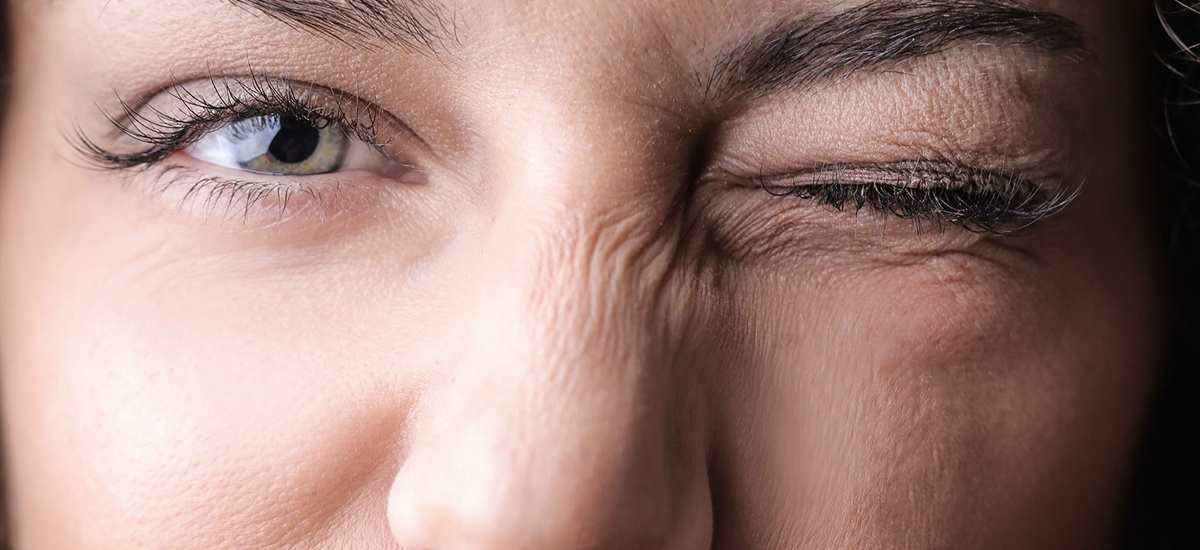Do I Need Glasses If One Eye Is Blurry?

Blurry vision can affect anyone, even children. Sometimes, it can occur due to a refractive error, such as astigmatism, hyperopia, myopia, or presbyopia. Other times, it may signify a more severe eye condition.
More often than not, prescription lenses are a simple solution for blurry vision. They can correct the way your eyes direct light to the retina, clearing up your vision at multiple distances.
But what happens if only one of your eyes has this issue? You might be wondering, ‘Do I need glasses if one eye is blurry?’ Let’s discuss.
Do I need glasses if one eye is blurry?
Corrective lenses can benefit you, whether you have blurry vision in one or both eyes. Everyone’s eyes are different, as are prescription levels, so if you’re experiencing any issues with your eyesight, an eye exam is a must.
Blurry vision is one of the most prominent symptoms of a refractive error. And when you think of a refractive error, astigmatism might be the first thing that comes to mind.
- Astigmatism: Astigmatism happens when your cornea takes on an abnormal form or when your eye lens bends at an odd angle. These issues can prevent you from concentrating light on the retina (found behind your eye), which can cause blurry vision, eye irritation, and headaches. People with astigmatism are likely to have other refractive errors, including hyperopia or myopia.
- Hyperopia: It indicates farsightedness (or a more effortless ability to see items far away from you versus up close). This condition can make your near vision blurry and cause other symptoms, such as strained or tired eyes.
- Myopia: If you’re among the 30 percent of myopic Americans, blurry vision may be one of the first indicators of your condition. Myopia makes you nearsighted, meaning it may be easy to see things in your immediate field of view, while distant visuals might be out of focus.
- Presbyopia: Presbyopia is similar to the other refractive errors, but it’s most likely to affect your eyes as you get older (usually after age 40). Your eye lenses can stiffen with age, which can cause complications with your near vision.
Contact lenses or glasses may help with any of these refractive errors. If you have blurry vision in one or both eyes, consult an eye doctor near you for a comprehensive eye exam.
It depends on if you have an eye disease.
While blurry vision might signify a refractive error, it may indicate an eye disease or another complication, too. A retinal detachment, for instance, may cause problems with your vision.
Here are some other conditions to watch for:
- Age-Related Macular Degeneration (AMD): It can lead to blurry or warped vision. This condition is one of the major causes of blindness in those above age 50, making early detection and diagnosis essential via an eye exam.
- Cataracts: This condition can cause cloudy vision in one eye or both eyes since cataracts cover parts of the eye lens. Light sensitivity is also common. Like the other eye conditions, it can contribute to blindness.
- Glaucoma: Acute angle-closure glaucoma may cause sudden blurry vision in one eye or both eyes due to a significant increase in eye pressure. If your blurry vision comes with pain in the eyes, or you’ve been noticing halos, contact your optometrist right away.
- While glasses might help with some symptoms of eye diseases, you’ll need to work with an eye doctor to find out the best treatment for your condition.
Summary: Are glasses necessary if my vision is blurry in one eye?
Glasses can help with many symptoms of vision loss, including blurry vision. Are you wondering, ‘Do I need glasses if one eye is blurry?’ It depends on whether you have a refractive error, eye disease, or another issue.
Prescription lenses are often suitable for refractive errors. However, you might need other treatments for eye diseases, such as AMD or cataracts.
If you woke up with blurry vision in one eye, along with any other symptoms of vision loss, please get in touch with an optometrist at your earliest convenience. This may be a sign of a serious condition, such as glaucoma, which may require immediate treatment.
Need help determining if glasses are right for your symptoms? Our team is here for you.
Book your eye exam at For Eyes
Have you had your annual comprehensive eye exam? Schedule an appointment with an Independent Doctor of Optometry at your local For Eyes.











